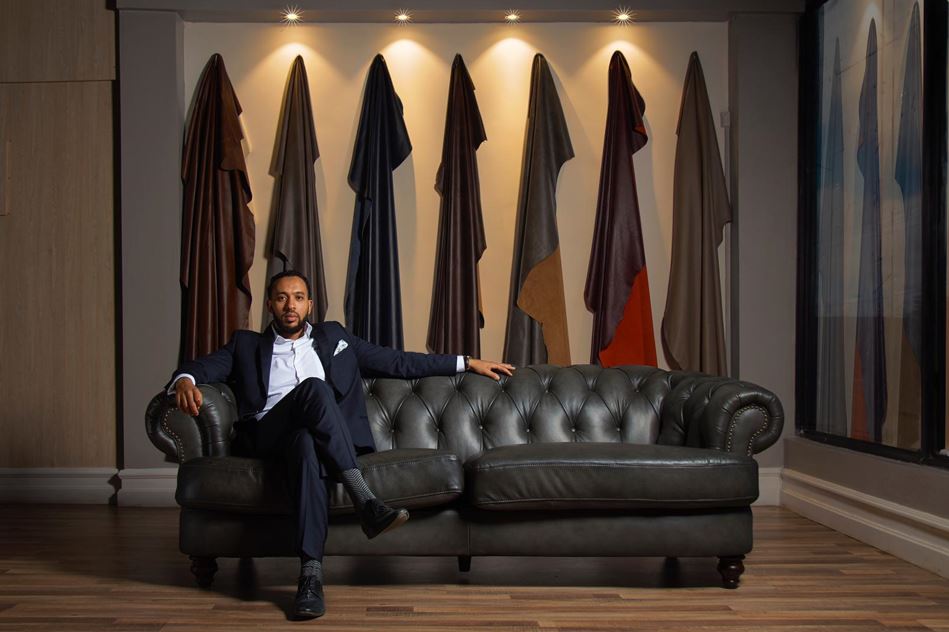1.Who is Amir?
Eritrean Canadian who grew up in Canada. Second eldest of five kids grew up in humble beginnings. Reserved naturally but can be a loud voice. Entrepreneur in all aspects. Someone who appreciates experiences more than material things. Very introspective.
2.Tell us something you would like us to know about you?
Although I am an entrepreneur through and through, I am an artist in spirit. I was also into the arts from sketching vigorously to being an avid painter.
3. Why do you love coffee?
Growing up in the Eritrean culture, coffee was everything. Boon is what it is referred to as. It is where family got together for all occasions. It is our social therapy. I love coffee for that reason. Every time I have a cup of coffee there is a sense of nostalgia attached to it, but it also brings a feeling of ease and calmness to my already hectic day.

4. How did the partnership between you and TOMOCA start?
I was introduced to Wondwossen (CGOO – Chief Global Operations Officer) 4 years back through a good friend. I was immediately taken by his brand and all that he had accomplished. Similarly to me, Wondwossen is reserved but I get pretty excited when I see an opportunity for business. After meeting with Wonde I immediately asked my friend about the possibility of having exclusive rights to his brand in certain markets. Wondwossen didn’t take me seriously as I am sure he gets fielded with similar requests on a weekly basis. We went our separate ways. As time passed I was working on my other businesses but always had Tomoca on the back of my mind especially when it came to merging it with my current businesses, and I invited him out to Kenya. He had never traveled to Kenya so he came with a group of people and to say the least he was blown away with the country and all the opportunities available. We strategized a plan of taking Tomoca global with focusing on key markets to be gateways into larger markets.
5. What made you choose Kenya as the starting point?
Kenya has a very young and dynamic population with good purchasing power, which demands high-quality products and services that are on par with international standards. The retail industry is also supported by low overhead fees and attractive incentives by property landlords. Kenya with its access to the port and open market would be responsible for Africa and the Middle East
6. Why add the Rwandan and Kenyan coffee to the Kenya TOMOCA outlet?
Offering variety is very important especially when having a global strategy. We couldn’t be just single origin based.

7. What is your go to coffee drink?
Depends on the day I am having but my two go to drinks are a double latte strong with honey or an Americano/Black coffee (if drip coffee) with honey.
8. How would you introduce TOMOCA coffee to people who do not like coffee?
Generally people lean either towards coffee or tea. Sprice is the drink Tomoca is known for. It is a mix of both coffee and tea with sugar which gives it the alluring image of the dancing drink. People who try that are immediately addicted to it.
9. What would you like people to know about TOMOCA?
The rich history behind it. Not many coffee brands have 6 decades behind them.

10. Anything else you would like to add to let us know about TOMOCA and the brand you are building in Kenya?
Similarly to Ethiopia we want Tomoca to be known more than just a coffee house. We want to be a community leader and be entrenched in the arts in Kenya. We are really excited and hope to give back to the community in two formats; the first getting involved with animal wildlife preservation. We hope to have a working relationship with the well-known, David Sheldrick foundation and also with an all-girls empowerment group. We think grassroots organizations are very integral to what Tomoca stands for.

